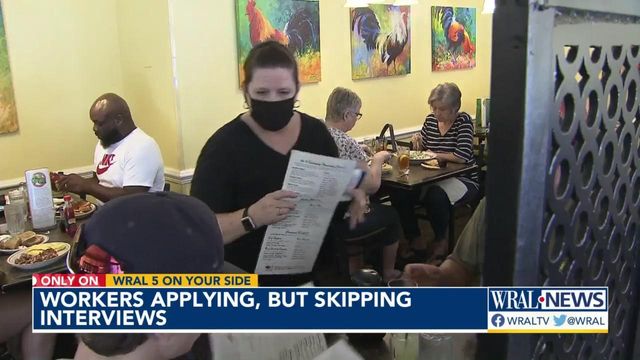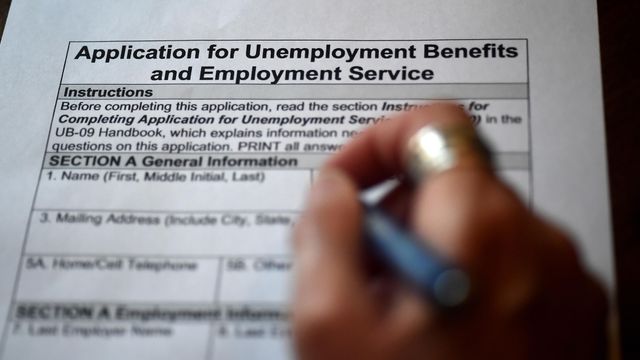Business owners say state should more closely track unemployment benefits
Businesses across the Triangle are struggling with a labor shortage as the economy has been upended by the coronavirus pandemic. You might have noticed that there are less people working at places you frequently visit -- like restaurants, salons and coffee shops.
Posted — UpdatedJennifer Patronelli, owner of Dsparada Color Salon in Raleigh, said that she's unable to fill all the positions she has open.
"People are applying, but they’re not showing up to scheduled interviews," Patronelli said. People who apply for jobs will leave their number, but won't pick up the phone for a virtual interview, she said.
The hiring manager at Skin Sense Spa in Raleigh described a similar situation. There are applicants, the manager said, but they "don't have bodies showing up for interviews" she said. Unemployment benefits to blame?
David Brigham, the owner Brigs Enterprises, recently had to shut down a restaurant in Cary due to staffing issues, He blames the federal unemployment benefits for there not being enough workers.
"Instead of nine people in the kitchen, they had two cooks, one prep cook, and one of the owners, she was back there washing dishes," said Brigham.
He and others blame part of the worker shortage on federal unemployment benefits, saying that money keeps some people from wanting a new job.
"I don't understand how anybody can collect -- who worked in a restaurant and then got laid off during COVID -- can collect unemployment right now when there's a now hiring sign in almost every restaurant in the state," he said.
Business owners told WRAL News they believe job applicants are not serious, are only checking a box to continue to receive unemployment benefits
Brigham criticized the unemployment system for not properly verifying if someone on unemployment is searching for a job. One of the requirements for the benefits is that the recipients must prove they are searching for a job to continue receiving aid.
"There should be far better documentation that someone is trying to find a job," Brigham said.
A spokesperson with the North Carolina Division of Employment Security said work search records are "reviewed" during mandatory appointments but "staff do not contact employers."
"They have to show proof that they're, you know, scheduling these interviews, and that's very easy to do," said Patronelli. "But then the unemployment isn't following through. I've never received a call from unemployment saying, you know, did so-and-so show up for their interview."
People who claim benefits without looking for work, return to work while collecting unemployment aid, or withhold information from the state's unemployment office could be subject to a misdemeanor and face fines or jail time.
State officials told 5 On Your Side in August that 870 cases were flagged as suspected fraud. Thousands more cases are on hold because they appear suspicious.
The U.S. Department of Labor only requires the state's unemployment office to audit and contact employers of 520 claims a year, officials said. Between March 2020 to March 2021, more than 970,000 claims where filed and the state only had to audit .05% of those claims.
The state's unemployment office did not have data on how much money recipients had to pay back after finding discrepancies.
In 2019, only 123 recipients had to pay back unemployment funds to the state.
• Credits
Copyright 2024 by Capitol Broadcasting Company. All rights reserved. This material may not be published, broadcast, rewritten or redistributed.






